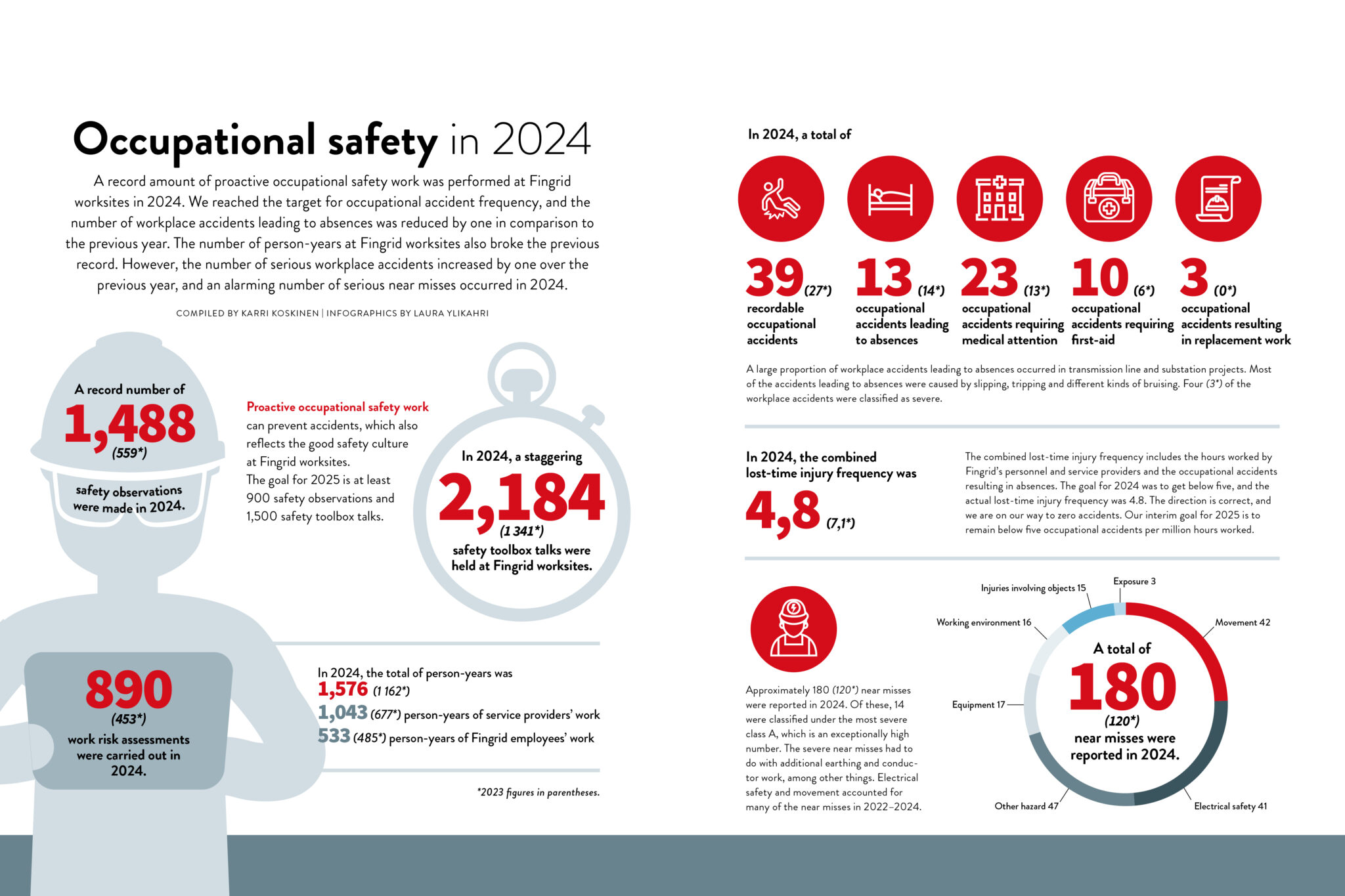The functioning of society depends on the security of the power system – when the power goes off, society is paralysed. Transmission system operators with system responsibility have been assigned a vital role in this work, and transmission system operators have internalised their role very effectively: it is the very purpose of their being. Maintaining transmission reliability and minimising the disruption of outages are essential aspects of a transmission system operator’s day-to-day work.

Since the electricity market was opened up to competition in the mid-1990s and the transmission system operators were separated from power-generating companies, the transmission system operators have adopted an important role as facilitators of a functional market. This work includes developing the main grid and ensuring reliable transmission connections in line with the needs of the electricity market. It also involves everyday operations to underpin the functioning of the market. An integral aspect of this work is to develop the electricity market to meet future needs. Now, the focus must be on the free movement of electricity within the country and its borders, as well as on the mechanisms for balancing out generation and consumption as efficiently as possible, today and tomorrow.
Although some time has passed since the market was opened up, many transmission system operators still lack clarity as to their role in the electricity market. Every transmission system operator uses indicators of system security, but few of them measure their success as facilitators of a functioning electricity market, let alone use it as a factor of their corporate responsibility or remuneration schemes. Even Fingrid has found it slightly challenging because the market perspective is much more abstract than system security: when the power goes off, the impact is immediate, but a loss of market efficiency caused by a transmission system operator is more difficult to detect.
Our indicator of success from the market perspective is the harm that transmission restrictions cause to the electricity market when the free movement of electricity is restricted.
When transmission system operators balance system security against market efficiency, they face difficult decisions that essentially juxtapose two desirable outcomes every day. A very tangible example of this is the allocation of transmission capacity for market use. From the perspective of system security, substantial margins from transmission capacity could be reserved just in case they are needed, while the market perspective requires as much transmission capacity as possible to be assigned to the market. The European Union is not entirely satisfied with the actions of transmission system operators in terms of allocating transmission capacity, and, in response, it has introduced a new provision in the regulations to require at least 70 per cent of the transmission capacity to be given to the market. At the moment, this matter is particularly relevant in the Nordic countries, as Sweden’s transmission system operator has begun limiting electricity imports from Finland. Market operators think Swedes are violating EU regulations. “Have they forgotten about the market?” they wonder.
Finland is something of a backwater in European Union markets, so allocating transmission capacity is easier for us than the countries in the middle of the power system. Indeed, Fingrid endeavours to provide 100 per cent of its transmission capacity to the market. The functioning of transmission connections that affect the electricity market is extremely important to us, and we have made substantial efforts in this area in recent years. Our indicator of success from the market perspective is the harm that transmission restrictions cause to the electricity market when the free movement of electricity is restricted. Our indicators of system security and market perspectives are among the key factors guiding the company’s activities. The indicators are also very effective as an aspect of our corporate responsibility and the remuneration of every Fingrid employee. You get what you measure!
Jukka Ruusunen
President & CEO
Fingrid







